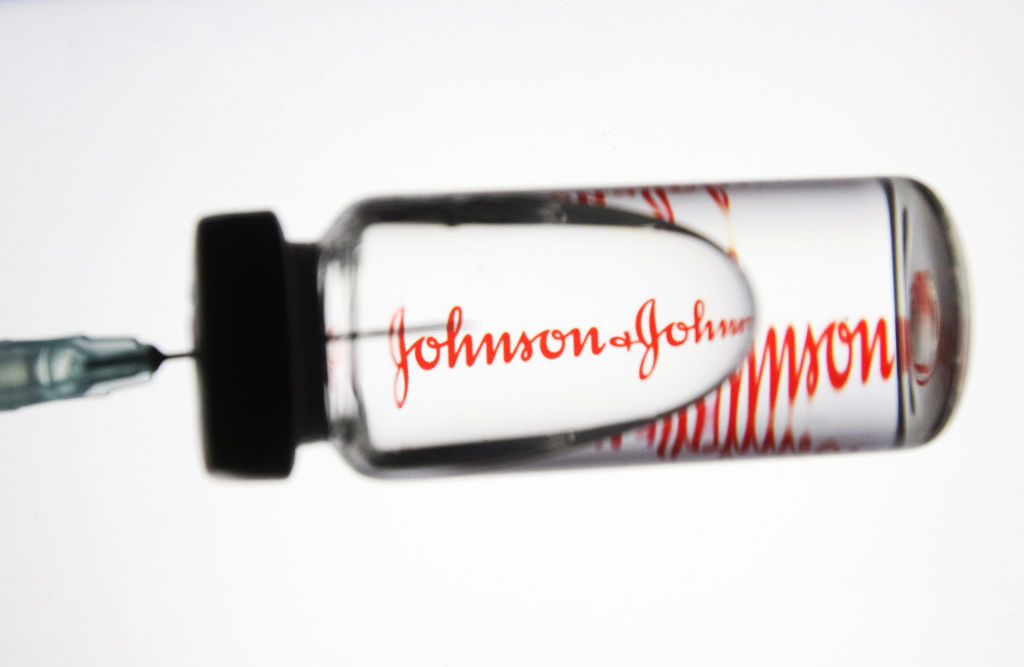
Johnson & Johnson’s experimental one-shot Covid-19 vaccine generated a long-lasting immune response in an early safety study, providing a glimpse at how it will perform in the real world as the company inches closer to approaching U.S. regulators for clearance.
More than 90% of participants made immune proteins, called neutralizing antibodies, within 29 days after receiving the shot, according to the report, and all participants formed the antibodies within 57 days. The immune response lasted for the full 71 days of the trial.
“Looking at the antibodies, there should be good hope and good reason that the vaccine will work,” in the company’s late-stage clinical trial that’s soon to report results, J&J Chief Scientific Officer Paul Stoffels said Tuesday in an interview.
The one-shot vaccine generates more neutralizing antibodies than a single dose of other front-runner Covid-19 vaccine, all of which are two-shot regimens. But when compared with two shots of these rivals, the response to J&J’s single shot is in the same range, Stoffels said.
Interim results from the phase 1/2 trial of 805 participants ages 18 and older were published Wednesday in the New England Journal of Medicine. The data expanded on more limited findings J&J first published in September.
Shares of the New Brunswick, New Jersey-based drugmaker rose 1.3% in post-market trading on Wednesday. Moderna Inc., which makes a two-dose Covid vaccine that’s been authorized for emergency use, fell 0.6% after U.S. markets closed.
J&J’s progress is being closely watched by top infectious disease experts because its vaccine has the potential to become the first that can protect people after just one shot, making mass-vaccination campaigns much easier. The company expects to get definitive efficacy data from a final-stage study by early next month, potentially leading to regulatory authorization by March.
Efficacy Ambitions
The U.S. has granted emergency-use authorizations to two vaccines, one developed by Pfizer Inc. and its partner BioNTech SE, and the other by Moderna Inc. Both employ a technology called messenger RNA that has never before been used in an approved product, and each showed more than 90% efficacy against Covid-19 symptoms.
Those results were better than expected. U.S. government officials had earlier said any vaccine with greater than 50% efficacy would be considered a success. Based on that guidance, J&J aimed for 60% effectiveness, Stoffels said, but “we hoped and we planned for 70%.”
Within weeks, J&J will learn how its vaccine performed in a late-stage trial of 45,000 volunteers. Stoffels now thinks it has the potential to be even higher than 70% effective, based on the early-stage findings and other factors.
When the antibody response to J&J’s shot is compared to others that have been through final stage trials “there’s a good reason to believe we can get into very high levels of efficacy,” Stoffels said. “Will it be north of 90%? I don’t know. The data will tell us.”
Moncef Slaoui, the chief scientific adviser to the U.S.’s Operation Warp Speed vaccine development and distribution effort, said Wednesday that he anticipates J&J’s one-shot vaccine will show 80% to 85% effectiveness against Covid-19. J&J and its government partners can’t see the data for the time being, a standard measure to prevent bias.
One-Dose Advantage
Experts have said that a single-shot vaccine offers advantages: ease of distribution and administration. Vaccines from Moderna, AstraZeneca Plc, and the Pfizer-BioNTech partnership all require two shots, which means repeat shipping and clinic visits. While Moderna and Pfizer-BioNTech’s shots must be frozen, J&J’s shot can be stored at refrigerator temperatures for three months.
“A single dose is going to be so much more effective in the world,” Stoffels said. “We are very confident that it works,” but another trial J&J is conducting of its vaccine plus a booster shot “will give us a backup.”
The study released Wednesday also found that a second dose of J&J’s shot, administered two months later, led to a three-fold increase in neutralizing antibodies. Stoffels said that’s positive news, as the drugmaker is still evaluating how long immunity from the single-shot will last, and whether higher antibody levels will be needed to combat new strains of the virus.
J&J kicked off the separate late-stage study of its two-dose vaccine regimen in November. Stoffels said the company is likely to finish enrolling the 30,000 participants before the end of first quarter, likely in March or April, and expects a data readout come summer.
Underlying Platform
J&J’s vaccine candidate is made from a cold virus, called an adenovirus, that’s modified to make copies of the coronavirus’ spike protein, which the pathogen uses to enter cells.
Though the altered virus can’t replicate in humans, it induces an immune response that prepares the body for an actual Covid-19 infection. It was first developed with researchers at Harvard University who have spent years working on the adenovirus platform, which is also used in J&J’s Ebola vaccine, as well as its Zika, RSV, and HIV investigational vaccine candidates.
The NEJM report showed the vaccine was well-tolerated across the study participants. There was no difference in the immune response in younger participants and the elderly, which is important given older populations are most vulnerable to the disease. The most frequent side effects were fever, fatigue, headache, muscle pain and injection-site pain.
More Must-Reads from TIME
- Donald Trump Is TIME's 2024 Person of the Year
- TIME’s Top 10 Photos of 2024
- Why Gen Z Is Drinking Less
- The Best Movies About Cooking
- Why Is Anxiety Worse at Night?
- A Head-to-Toe Guide to Treating Dry Skin
- Why Street Cats Are Taking Over Urban Neighborhoods
- Column: Jimmy Carter’s Global Legacy Was Moral Clarity
Contact us at letters@time.com